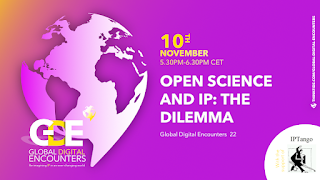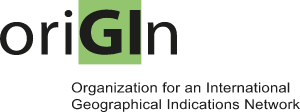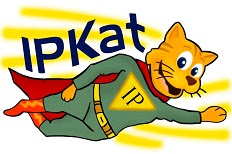
[GUEST POST] The Wiki Law Project: The use of open-source technologies in the dissemination of Intellectual Property and their benefits for teaching
The use of open-source technologies in the dissemination of Intellectual
Property and their benefits for teaching
by Hernán Núñez Rocha
The Wiki Law Project took place from 2013
to 2019 in Ecuador, where several governmental actors were discussing about the
necessity to move from an economy based on the exploitation of natural
resources to a model based on knowledge CITA.
The involved parts concluded that it was necessary to promulgate new
regulations on Higher Education, Science, Technology, Innovation, Intellectual
Property, and Traditional Knowledge. Considering
the instrumental use of Intellectual Property, the IPRs were defined as one of
the main tools needed for the transition to the knowledge economy. But there
was a problem, most citizens were not familiar with IPR. In fact, even most stakeholders neither understood
the importance of IPRs, nor the use of new works and technologies. Also, there was an additional problem,
stakeholders, who were aware of the importance of IPRs, were divided into two
groups that had opposed views. One group saw the IPRs as a profitable tool for
their creations, and the other group, saw it as an obstacle for innovation.
Consequently, the idea of the Wiki Law Project about IP came up. The site was developed jointly by the staff of the Instituto de Altos Estudios Nacionales (IAEN), NGOs, professional associations, chambers, and public institutions. Moreover, the Ecuadorian Patent and Trademark Office (now SENADI) and the Ministry of Higher Education (SENESCYT) got involved and support the project.
The wiki was hosted in the domain of the Ministry of Higher Education, as http://coesc.educacionsuperior.gob.ec/. The site explained didactically all the IPRs and its main features, its daily uses, and its economic, scientific, and legal significance. Also, the project included a juridical analysis of the IP Law in forced at that time, as well as a proposal of a draft Law. The wiki had a basic design, based on the Wikipedia interface, and allowed to create an account, review the contents, edit certain texts and create discussion forums.
The wiki was
online from 2013 to 2020. However, the period of greatest activity was from its
launch in March of 2013 to October of 2016, when the new IP regime was approved
within the Organic Code for the Social Knowledge and Innovation Economy, known
as the “CÓDIGO INGENIOS”. According to
the wiki managers, there were more than 1.8 million visits and more than 38
thousand editions, in that period. Additionally,
the wiki generated a domino effect, and suddenly the IPR were in the public
opinion. A survey conducted by the IP
Office reflected a growth in the news about intellectual property of more than
600% in the period of June 2014 to June 2016.
After the approval of the CÓDIGO INGENIOS, the wiki continued online, but the users’ interactions were gradually decreasing until 2020 when the wiki was finally switched off. Despite this, the impact generated by the wiki in their first years was gradually moved to other places in the remaining years. The Academia was one of the main receivers of the benefits of this project. If we analyse the statistics since the wiki was launched, it is possible to identify a significant and constant growth in the following aspects:
• There was an increase in the number of
Technology and Innovation Support Centres located at the universities. Before
the project, there was not any Centre according to the WIPO criteria. Today
there are 11 universities that have their own Technology Transfer Office.
• Regarding the use of the IPR into the
Universities, there is a growth in the average that goes from 1.3 patent
applications until 2012 to 27.5 in the period 2012-2019.
• Regarding IP teaching, IP Master's
programs increased from 1 to 5 nationwide.
• The number of IP courses in the
curriculum of the universities also increased. Before the Wiki Law Project,
only 7 universities offered the course of intellectual property as an elective
subject, now there are 25 that have the course as a compulsory subject. Before, it was only taught in the Law School,
now there are IP courses in 8 different careers.
• Regarding final degree projects, a
study conducted in 5 Ecuadorian universities shows an increase of more than
300% since 2013.
As we can see, the Wiki Law Project was not only a success by itself, but also generated several positive externalities. Nowadays, the information technologies allow us to do great things without a big budget. In the case of the Wiki Law Project, a generic website template with basic functions was enough. It was not even necessary to get a hosting since the page was hosted in the domain of the Ministry of Higher Education.
The Wiki Law
project is an example of the interaction between academia and society, which
also generated an academic demand focused on issues related to intellectual
property. It was a project without “owners”.
After the idea was launched, many institutions got involved and once the
wiki was online, a huge collaborative work was generated. There are also several papers that describe
the Wiki Law as a platform that allows to recuperate the public and common
sense of knowledge, throughout collaborative work.
However, the
Wiki Law Project is just one example of the use of open-source technologies in
the dissemination of intellectual property. What is important here, is not the
instrument but the process. This process results in the use of information
technologies to spread the general aspects of the IPRs and its daily uses. With
this, is possible to create a communication channel in two directions. On one
hand, universities can provide information to society; and on the other hand, universities
could collect data about social and commercial needs. Therefore, with the understanding of these
facts, universities could adapt their activities and curriculum in line with the
expectations of the society.
PS This
blog post is based on the presentation made by the author at the 13th
Anniversary EIPTN Conference 2021.







.jpg)

























